Binh Dan Hospital (HCMC) is the cradle of the surgical industry in the South, bearing the mark of outstanding masters such as Professor Pham Bieu Tam, Professor Ngo Gia Hy, Professor Hoang Tien Bao, the generation of Professor Van Tan, Professor Vo Thanh Phung, Professor Le Quang Nghia, Professor Nguyen Chan Hung and many other names. From here, the leading birds continued to build specialized centers in HCMC on orthopedic trauma, pediatric orthopedics or oncology... At the age of 75 with white hair like cotton, in the memory of Professor Le Quang Nghia (advisor, former Deputy Director of Binh Dan Hospital), the time following the respected teachers here is a brilliant memory that he will never forget.  Professor Le Quang Nghia is a leading physician in digestive surgery, specializing in esophageal cancer surgery. He began his career in saving lives and teaching at Binh Dan Hospital in 1974. This is also the only hospital he has been attached to, almost his entire life. “When I was over 10 years old, I was sick. My mother took me to a clinic in My Tho ( Tien Giang ) of a very good doctor who had studied in France. There were many patients. Perhaps, there was too much work, so the doctor was grumpy. I had a bad impression and suddenly thought, why don't I become a doctor so that patients can avoid that grumpiness,” Professor Nghia said. Many years later, the fleeting thought became reality. Student Le Quang Nghia followed his brother to take the entrance exam to Saigon Medical School (today's Ho Chi Minh City University of Medicine and Pharmacy). Passing the residency exam, he chose the surgical major and was assigned to Binh Dan Hospital. From here, he began to follow two teachers who had a profound influence on the scientific spirit, morality and standards: Professor Hoang Tien Bao and Professor Pham Bieu Tam. "I followed Professor Hoang Tien Bao for 6 months, studying orthopedics. He taught me a spirit of scientific research," Professor Nghia shared. There was a period when every Friday afternoon, people saw resident doctor Le Quang Nghia regularly present at Professor Bao's house after office hours. It turned out that Professor Bao asked him to come and present what he had learned as well as the progress of his thesis. All the written content was neatly typed.
Professor Le Quang Nghia is a leading physician in digestive surgery, specializing in esophageal cancer surgery. He began his career in saving lives and teaching at Binh Dan Hospital in 1974. This is also the only hospital he has been attached to, almost his entire life. “When I was over 10 years old, I was sick. My mother took me to a clinic in My Tho ( Tien Giang ) of a very good doctor who had studied in France. There were many patients. Perhaps, there was too much work, so the doctor was grumpy. I had a bad impression and suddenly thought, why don't I become a doctor so that patients can avoid that grumpiness,” Professor Nghia said. Many years later, the fleeting thought became reality. Student Le Quang Nghia followed his brother to take the entrance exam to Saigon Medical School (today's Ho Chi Minh City University of Medicine and Pharmacy). Passing the residency exam, he chose the surgical major and was assigned to Binh Dan Hospital. From here, he began to follow two teachers who had a profound influence on the scientific spirit, morality and standards: Professor Hoang Tien Bao and Professor Pham Bieu Tam. "I followed Professor Hoang Tien Bao for 6 months, studying orthopedics. He taught me a spirit of scientific research," Professor Nghia shared. There was a period when every Friday afternoon, people saw resident doctor Le Quang Nghia regularly present at Professor Bao's house after office hours. It turned out that Professor Bao asked him to come and present what he had learned as well as the progress of his thesis. All the written content was neatly typed. 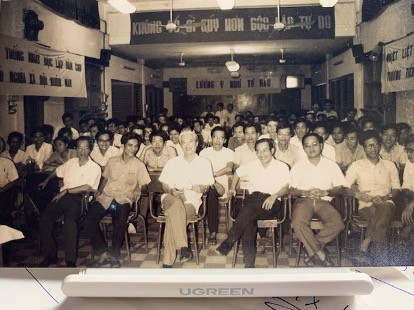

 Professor Le Quang Nghia is a leading physician in digestive surgery, specializing in esophageal cancer surgery. He began his career in saving lives and teaching at Binh Dan Hospital in 1974. This is also the only hospital he has been attached to, almost his entire life. “When I was over 10 years old, I was sick. My mother took me to a clinic in My Tho ( Tien Giang ) of a very good doctor who had studied in France. There were many patients. Perhaps, there was too much work, so the doctor was grumpy. I had a bad impression and suddenly thought, why don't I become a doctor so that patients can avoid that grumpiness,” Professor Nghia said. Many years later, the fleeting thought became reality. Student Le Quang Nghia followed his brother to take the entrance exam to Saigon Medical School (today's Ho Chi Minh City University of Medicine and Pharmacy). Passing the residency exam, he chose the surgical major and was assigned to Binh Dan Hospital. From here, he began to follow two teachers who had a profound influence on the scientific spirit, morality and standards: Professor Hoang Tien Bao and Professor Pham Bieu Tam. "I followed Professor Hoang Tien Bao for 6 months, studying orthopedics. He taught me a spirit of scientific research," Professor Nghia shared. There was a period when every Friday afternoon, people saw resident doctor Le Quang Nghia regularly present at Professor Bao's house after office hours. It turned out that Professor Bao asked him to come and present what he had learned as well as the progress of his thesis. All the written content was neatly typed.
Professor Le Quang Nghia is a leading physician in digestive surgery, specializing in esophageal cancer surgery. He began his career in saving lives and teaching at Binh Dan Hospital in 1974. This is also the only hospital he has been attached to, almost his entire life. “When I was over 10 years old, I was sick. My mother took me to a clinic in My Tho ( Tien Giang ) of a very good doctor who had studied in France. There were many patients. Perhaps, there was too much work, so the doctor was grumpy. I had a bad impression and suddenly thought, why don't I become a doctor so that patients can avoid that grumpiness,” Professor Nghia said. Many years later, the fleeting thought became reality. Student Le Quang Nghia followed his brother to take the entrance exam to Saigon Medical School (today's Ho Chi Minh City University of Medicine and Pharmacy). Passing the residency exam, he chose the surgical major and was assigned to Binh Dan Hospital. From here, he began to follow two teachers who had a profound influence on the scientific spirit, morality and standards: Professor Hoang Tien Bao and Professor Pham Bieu Tam. "I followed Professor Hoang Tien Bao for 6 months, studying orthopedics. He taught me a spirit of scientific research," Professor Nghia shared. There was a period when every Friday afternoon, people saw resident doctor Le Quang Nghia regularly present at Professor Bao's house after office hours. It turned out that Professor Bao asked him to come and present what he had learned as well as the progress of his thesis. All the written content was neatly typed. 
A meeting after 1975 at the large lecture hall of Binh Dan Hospital, with the presence of Professor Ton That Tung, Professor Pham Bieu Tam, and Professor Ngo Gia Hy. Photo archive.
Listening to his teacher, Dr. Nghia often diligently translated lectures from French and English documents. At that time, there was no Internet, so medical documents were very valuable and rare. There was a book of about 700-800 pages, Dr. Nghia still enthusiastically read and translated it into Vietnamese, then took the trouble to type it into 7-8 copies. To make the lectures more vivid, this doctor went to flea markets to find old projectors with 1,000W bulbs, and added a fan to cool the machine. The screen was a whitewashed wall. He even bought a Praktica camera from Czechoslovakia, practiced taking photos, and developed film to make slideshows. “Thanks to reading documents, translating and making lecture slides, I became more and more confident in surgery and emergency surgery. Until now, I still keep the habit of reading and writing. The more I write, the more I see that medical knowledge is truly boundless and Professor Hoang Tien Bao's words are so accurate and precious,” said Professor Nghia. In the memories of the old professor, teacher Pham Bieu Tam is associated with calmness, frugality but extremely profound. The talent and virtue of Professor Pham Bieu Tam is a model for students like Professor Van Tan and Le Quang Nghia to inherit, treating patients with dedication. There is an interesting story that student Le Quang Nghia still remembers about his teacher. Around 1975, Professor Pham Bieu Tam once had to make a disciplinary decision with a doctor who committed a serious professional error. The disciplinary form was "suspending the knife" for 3 months (meaning not being allowed to perform surgery). For some reason, after only 1 month, this doctor went to Binh Dan Hospital and met Professor Tam. The doctor bowed and said "Sir". Professor Tam said briefly: "You are not my student", then walked away. When the 3 months ended, this doctor met the teacher and bowed. At this time, Professor Pham Bieu Tam nodded in agreement. “Hang up the knife not because the teacher hates me, but to give me time to sober up and correct my mistakes,” Professor Nghia explained. That is a very necessary strictness because the medical profession is related to the lives of patients.
Students of Professor Pham Bieu Tam visit their teacher at his home. Photo courtesy.

Around 1979, Binh Dan Hospital was asked by its superiors to stop performing esophageal cancer surgery. The reason was that the mortality rate after surgery was very high. Upon hearing the news, Dr. Le Quang Nghia went to talk to Professor Pham Bieu Tam. He asked Professor Tam to continue esophageal surgery for one year. If the mortality rate did not improve, he would agree to stop performing it. This decision was not easy to carry out because at the same time, in many other countries, the mortality rate of esophageal surgery was also very high. Large hospitals in the North had to stop this technique to focus on developing liver surgery. Because esophageal cancer often metastasizes "leapfrog", when performing surgery, the patient's entire esophagus had to be removed. To access the entire esophagus, surgery had to be performed through 3 ways: right chest, abdomen, left neck. As a result, the patient's body (mostly over 60 years old) was severely affected. This major surgery required a lot of anesthesia (mainly ether), the surgery time was long, and it was a waste of human resources and medicine. Because they cannot eat or drink, patients will lose 200g to 450g of weight per day. Nutrition at this time is very poor, so pre-operative preparation for patients is not good. Exhaustion and death after surgery are inevitable outcomes. “As soon as Professor Tam agreed to give them another year, we prepared very carefully before each surgery. Malnourished patients had to be given albumin to support their physical condition, correct electrolyte imbalances, correct lung infections, and invest more in the patients. As a result, the survival rate increased by 50%. After that, no one mentioned having to stop esophageal surgery anymore,” Professor Nghia said with a smile. Doctors from many places knew about this and often referred esophageal cancer patients to Binh Dan Hospital. Anesthesia techniques were also getting better and better, and surgical results were increasingly positive. Professor Nghia became a leading expert in esophageal surgery. In 1996, he reported a research project with 194 esophageal surgeries (open surgery). In 2000, at the national surgical conference, Professor Nghia was the only speaker on the topic of esophageal cancer surgery. His juniors then followed him in performing esophageal surgery using endoscopic techniques, bringing better treatment results and quality of life for patients. 
 Throughout the years of passionate dedication alongside his respected teachers and brothers, Professor Nghia reserved a respectful corner for the traditional “Thursday Night”. For him, it was the most beautiful memory. “Thursday Night” is the evening that all medical students eagerly await. This activity is similar to that in hospitals in France. The head of the organizing committee is former resident doctors, starting with Dr. Vo Thanh Phung, followed by Dr. Nguyen Van Hiep, and then Dr. Le Quang Nghia (then a lecturer in the Department of Surgery, former resident doctor). Every Thursday night, from 7:30 pm to 9:00 pm, hundreds of medical students will fill lecture hall A of Binh Dan Hospital. A doctor presents a topic using the main means of an Over-head projector (an old type of projector). Senior teachers and experts from the University of Medicine and Pharmacy, Ho Chi Minh City will participate in the discussion. Students are allowed to ask questions freely, and the debate is very lively. Doctor Le Quang Nghia was both an organizer and a program host at that time. After the meeting, he and his team went to Uncle Cao's noodle shop for a late-night snack. When they returned home, it was almost 11 p.m. "Most of the doctors and nurses in this group have retired. Uncle Cao has also passed away, but his descendants have continued to sell noodles for the third generation. Thursday night is my best memory of Binh Dan Hospital," Professor Nghia emotionally recounted.
Throughout the years of passionate dedication alongside his respected teachers and brothers, Professor Nghia reserved a respectful corner for the traditional “Thursday Night”. For him, it was the most beautiful memory. “Thursday Night” is the evening that all medical students eagerly await. This activity is similar to that in hospitals in France. The head of the organizing committee is former resident doctors, starting with Dr. Vo Thanh Phung, followed by Dr. Nguyen Van Hiep, and then Dr. Le Quang Nghia (then a lecturer in the Department of Surgery, former resident doctor). Every Thursday night, from 7:30 pm to 9:00 pm, hundreds of medical students will fill lecture hall A of Binh Dan Hospital. A doctor presents a topic using the main means of an Over-head projector (an old type of projector). Senior teachers and experts from the University of Medicine and Pharmacy, Ho Chi Minh City will participate in the discussion. Students are allowed to ask questions freely, and the debate is very lively. Doctor Le Quang Nghia was both an organizer and a program host at that time. After the meeting, he and his team went to Uncle Cao's noodle shop for a late-night snack. When they returned home, it was almost 11 p.m. "Most of the doctors and nurses in this group have retired. Uncle Cao has also passed away, but his descendants have continued to sell noodles for the third generation. Thursday night is my best memory of Binh Dan Hospital," Professor Nghia emotionally recounted. 

A surgery at Binh Dan Hospital by Professor Van Tan - a student of Professor Pham Bieu Tam. Photo courtesy.
 Throughout the years of passionate dedication alongside his respected teachers and brothers, Professor Nghia reserved a respectful corner for the traditional “Thursday Night”. For him, it was the most beautiful memory. “Thursday Night” is the evening that all medical students eagerly await. This activity is similar to that in hospitals in France. The head of the organizing committee is former resident doctors, starting with Dr. Vo Thanh Phung, followed by Dr. Nguyen Van Hiep, and then Dr. Le Quang Nghia (then a lecturer in the Department of Surgery, former resident doctor). Every Thursday night, from 7:30 pm to 9:00 pm, hundreds of medical students will fill lecture hall A of Binh Dan Hospital. A doctor presents a topic using the main means of an Over-head projector (an old type of projector). Senior teachers and experts from the University of Medicine and Pharmacy, Ho Chi Minh City will participate in the discussion. Students are allowed to ask questions freely, and the debate is very lively. Doctor Le Quang Nghia was both an organizer and a program host at that time. After the meeting, he and his team went to Uncle Cao's noodle shop for a late-night snack. When they returned home, it was almost 11 p.m. "Most of the doctors and nurses in this group have retired. Uncle Cao has also passed away, but his descendants have continued to sell noodles for the third generation. Thursday night is my best memory of Binh Dan Hospital," Professor Nghia emotionally recounted.
Throughout the years of passionate dedication alongside his respected teachers and brothers, Professor Nghia reserved a respectful corner for the traditional “Thursday Night”. For him, it was the most beautiful memory. “Thursday Night” is the evening that all medical students eagerly await. This activity is similar to that in hospitals in France. The head of the organizing committee is former resident doctors, starting with Dr. Vo Thanh Phung, followed by Dr. Nguyen Van Hiep, and then Dr. Le Quang Nghia (then a lecturer in the Department of Surgery, former resident doctor). Every Thursday night, from 7:30 pm to 9:00 pm, hundreds of medical students will fill lecture hall A of Binh Dan Hospital. A doctor presents a topic using the main means of an Over-head projector (an old type of projector). Senior teachers and experts from the University of Medicine and Pharmacy, Ho Chi Minh City will participate in the discussion. Students are allowed to ask questions freely, and the debate is very lively. Doctor Le Quang Nghia was both an organizer and a program host at that time. After the meeting, he and his team went to Uncle Cao's noodle shop for a late-night snack. When they returned home, it was almost 11 p.m. "Most of the doctors and nurses in this group have retired. Uncle Cao has also passed away, but his descendants have continued to sell noodles for the third generation. Thursday night is my best memory of Binh Dan Hospital," Professor Nghia emotionally recounted. 
Professor Le Quang Nghia (left) and Professor Van Tan both served as Deputy Director and advisor of Binh Dan Hospital.
According to Professor Nghia, what is valuable is that this activity program is still maintained as a thread through generations of doctors, albeit in a different form. It is a professional activity and medical record review session for resident doctors, a session to analyze professional errors with a specific case to help doctors at Binh Dan Hospital improve themselves. Up to now, when his hair has turned white as cotton, Professor Nghia is still diligently passing on the torch to the next generation with a daily work schedule at the hospital and at school. In Professor Nghia's instructions to his juniors, the image of the outstanding teachers who guided him from the early days still appears./.Vietnamnet.vn


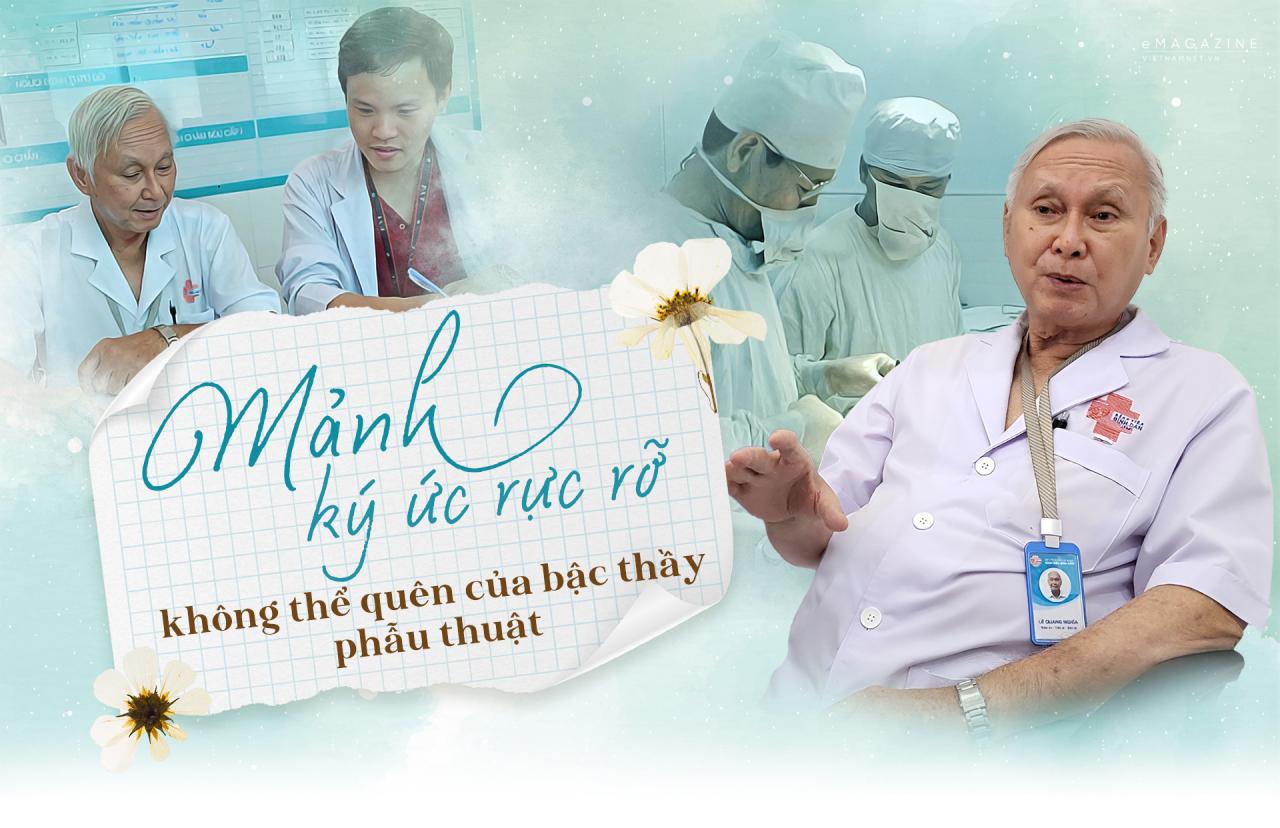
![[Photo] Prime Minister Pham Minh Chinh chairs the Government's online conference with localities](https://vphoto.vietnam.vn/thumb/1200x675/vietnam/resource/IMAGE/2025/10/5/264793cfb4404c63a701d235ff43e1bd)


![[Photo] Prime Minister Pham Minh Chinh launched a peak emulation campaign to achieve achievements in celebration of the 14th National Party Congress](https://vphoto.vietnam.vn/thumb/1200x675/vietnam/resource/IMAGE/2025/10/5/8869ec5cdbc740f58fbf2ae73f065076)


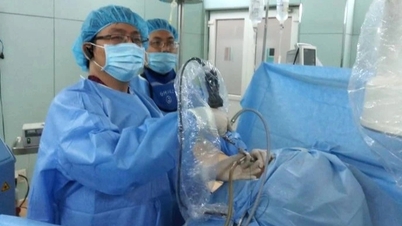




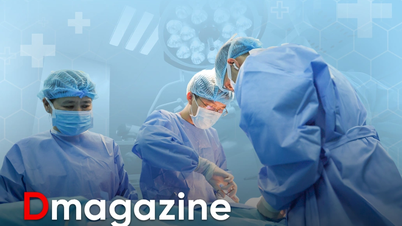
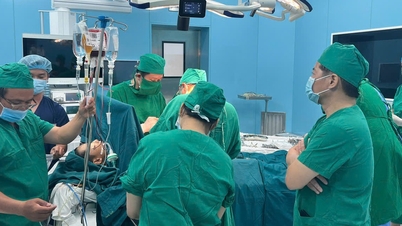




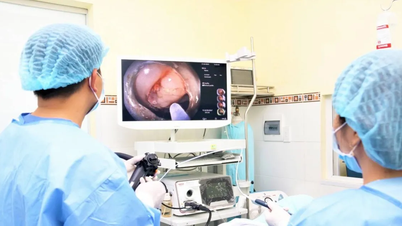
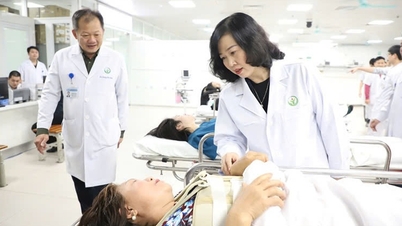
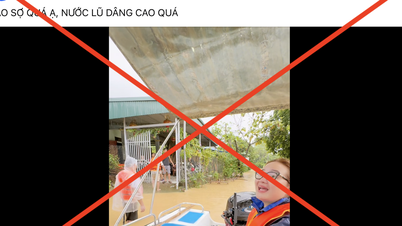
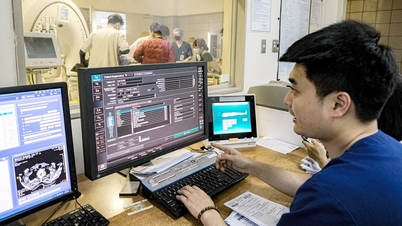
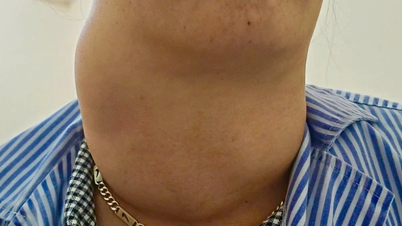





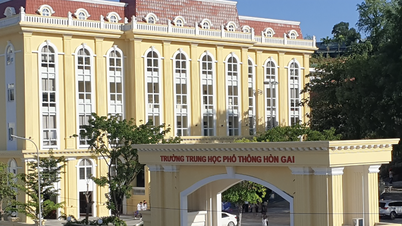


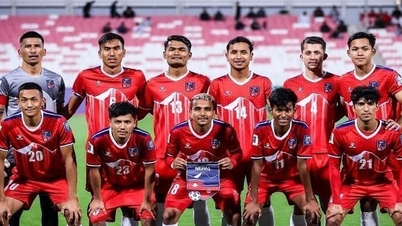
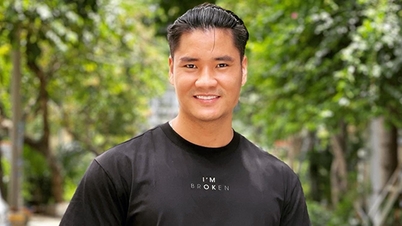






















![[VIDEO] Summary of Petrovietnam's 50th Anniversary Ceremony](https://vphoto.vietnam.vn/thumb/402x226/vietnam/resource/IMAGE/2025/10/4/abe133bdb8114793a16d4fe3e5bd0f12)

![[VIDEO] GENERAL SECRETARY TO LAM AWARDS PETROVIETNAM 8 GOLDEN WORDS: "PIONEER - EXCELLENT - SUSTAINABLE - GLOBAL"](https://vphoto.vietnam.vn/thumb/402x226/vietnam/resource/IMAGE/2025/7/23/c2fdb48863e846cfa9fb8e6ea9cf44e7)













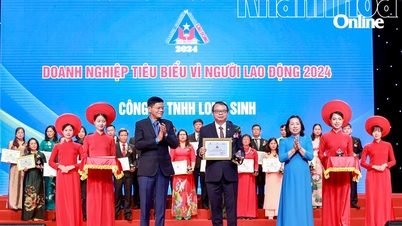

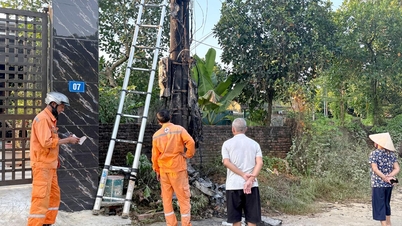

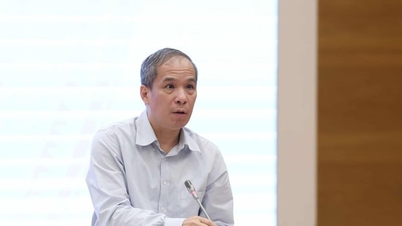

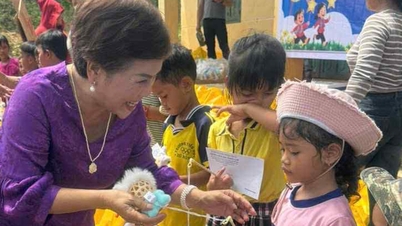

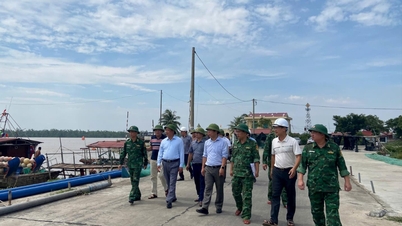

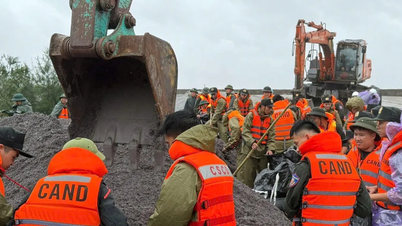












Comment (0)